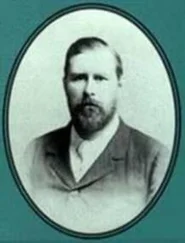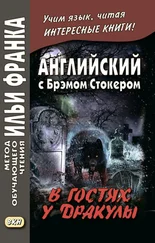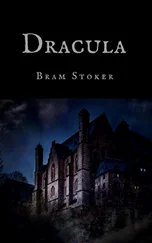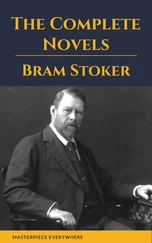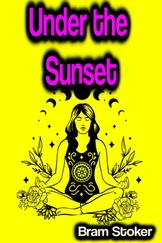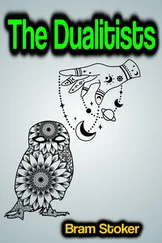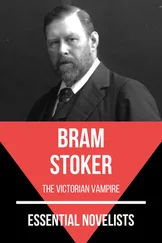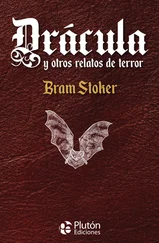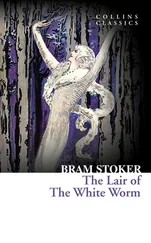Bram Stoker - The Censorship of Fiction
Здесь есть возможность читать онлайн «Bram Stoker - The Censorship of Fiction» весь текст электронной книги совершенно бесплатно (целиком полную версию без сокращений). В некоторых случаях можно слушать аудио, скачать через торрент в формате fb2 и присутствует краткое содержание. Город: New York, Год выпуска: 1908, Издательство: Leonard Scott Publication Co., Жанр: Прочая научная литература, на английском языке. Описание произведения, (предисловие) а так же отзывы посетителей доступны на портале библиотеки ЛибКат.
- Название:The Censorship of Fiction
- Автор:
- Издательство:Leonard Scott Publication Co.
- Жанр:
- Год:1908
- Город:New York
- ISBN:нет данных
- Рейтинг книги:3 / 5. Голосов: 1
-
Избранное:Добавить в избранное
- Отзывы:
-
Ваша оценка:
- 60
- 1
- 2
- 3
- 4
- 5
The Censorship of Fiction: краткое содержание, описание и аннотация
Предлагаем к чтению аннотацию, описание, краткое содержание или предисловие (зависит от того, что написал сам автор книги «The Censorship of Fiction»). Если вы не нашли необходимую информацию о книге — напишите в комментариях, мы постараемся отыскать её.
The Censorship of Fiction — читать онлайн бесплатно полную книгу (весь текст) целиком
Ниже представлен текст книги, разбитый по страницам. Система сохранения места последней прочитанной страницы, позволяет с удобством читать онлайн бесплатно книгу «The Censorship of Fiction», без необходимости каждый раз заново искать на чём Вы остановились. Поставьте закладку, и сможете в любой момент перейти на страницу, на которой закончили чтение.
Интервал:
Закладка:
The first question then is as to restraint or no restraint. That restraint in some form is necessary is shown by the history of the last few years with regard to works of fiction. The self-restraint and reticence which many writers have through centuries exercised in behalf of an art which they loved and honoured has not of late been exercised by the few who seek to make money and achieve notoriety through base means. There is no denying the fact nor the cause; both are only too painfully apparent. Within a couple of years past quite a number of novels have been published in England that would be a disgrace to any country even less civilised than our own. The class of works to which I allude are meant by both authors and publishers to bring to the winning of commercial success the forces of inherent evil in man. The word man here stands for woman as well as man; indeed, women are the worst offenders in this form of breach of moral law. As to the alleged men who follow this loathsome calling, what term of opprobrium is sufficient, what punishment could be too great? This judgment of work which claims to be artistic may seem harsh, and punishment may seem vindictive; the writer has no wish to be either harsh or vindictive—except in so far as all just judgment may seem harsh and all punishment vindictive. For look what those people have done. They found an art wholesome, they made it morbid; they found it pure, they left it sullied. Up to this time it was free—the freest thing in the land; they so treated it, they so abused the powers allowed them and their own opportunities, that continued freedom becomes dangerous, even impossible. They in their selfish greed tried to deprave where others had striven to elevate. In the language of the pulpit, they have ‘crucified Christ afresh.’ The merest glance at some of their work will justify any harshness of judgment; the roughest synopsis will horrify. It is not well to name either these books or their authors, for such would but make known what is better suppressed, and give the writers the advertisement which they crave. It may be taken that such works as are here spoken of deal not merely with natural misdoing based on human weakness, frailty, or passions of the senses, but with vices so flagitious, so opposed to even the decencies of nature in its crudest and lowest forms, that the poignancy of moral disgust is lost in horror. This article is no mere protest against academic faults or breaches of good taste. It is a deliberate indictment of a class of literature so vile that it is actually corrupting the nation.
The subject is one seriously undertaken, and with a full sense of responsibility. The evil is a grave and dangerous one, and may, if it docs not already, deeply affect the principles and lives of the young people of this country. The measure of protection from it involves a departure from the custom of free speech hitherto tolerated by the Legislature. But the class it deals with is constructively a criminal class, and repressive measures such as are required in dealing with all crimes are necessary. Press criticism, which might help to restrain, is sadly deficient; the Press generally has manifestly not done its duty in this respect. The offenders are such as are amenable only to punitive measures. They may be described as a class which is thus designated in the searching Doric of the North of Ireland, ‘They would do little for God’s sake if the devil was dead!’ It is hardly possible to obliterate such works of shameful lubricity; unhappily the weakness of poor humanity makes a continuous market for them. But we should at least try to prevent for the future such filthy and dangerous output. We take steps to deal drastically with evils that menace the well-being of society. Dance houses are regarded jealously, disorderly houses are sternly dealt with, the sale of noxious drugs is carefully regulated, even the sale of intoxicants is limited by restraining measures. In fact, all occupations based on human frailty are by the general wisdom of the State put in greater or less degree under supervision. Why not, then, if necessary, adopt the same attitude towards an evil more grave than any of the above, because more insidious?
The writer does not, for one, wish such a thing as a censorship of fiction to be brought about if it can be possibly avoided, if some other means of protection for the highest class of literature can be found or designed. He glories, like the others of his calling, in the freedom of letters, and trusts that some way may be found of dealing with the dangers that threaten. But if no other adequate way can be found, and if the plague-spot continues to enlarge, a censorship there must be. Of course there is, in a way, a remedy already. There exists a censorship of a kind, but it is crude and coarse and clumsy, and difficult of operation—the police. No one could wish an art so fine as literature, with a spirit as subtle and evanescent as cenanthic ether—the outward expression of the ‘thaumaturgic art of thought’—put under repressive measures carried out by coarse officials. But it is the coarseness and unscrupulousness of certain writers of fiction which has brought the evil; on their heads be it.
The sad part of the whole thing is the wantonness of it. Coarseness there has always been of some measure. Smollett, for instance, was undeniably and wantonly coarse; even Fielding’s beautiful work was dyed with the colour of an age of luxury and unscrupulousness. But certain of the writers of our time claim absolute freedom of both subject and method of treatment, in order that they may deal with what they call ‘problems.’ Now there is no problem which may arise to any human being in the long course between the cradle and the grave which need be forbidden to public consideration, and which may not be wholesomely dealt with. There is not a household which may not have its painful experiences of some of them, and they are solved to some end with boldness and decorum. But it may be feared that writers who deal with lewd subjects generally use the word ‘problem’ either as a shelter for themselves or as a blind for some intention more base than mere honest investigation. The problem they have in reality set themselves is to find an easy and prosperous way to their desires without suffering from public ignominy, police interference, or the reproaches of conscience; with the inevitable result that they rightly incur the penalties distributable by all three. It is the same old problem which has tortured fallible humanity from the beginning, or, at any rate, since desire of many things found itself face to face with inadequate powers and insufficient opportunities for attainment.
Truth can always investigate in worthy fashion. Otherwise medicine and surgery would be obnoxious trades, and law and the administration of religion dangerous callings. As it is, those who prostitute their talents—and amongst them the fairest, imagination— must expect the treatment accorded to the class which they have deliberately joined. The rewards of such—personal luxury and perhaps a measure of wealth—may be theirs, but they must not expect the pleasures or profits of the just—love and honour, troops of friends, and the esteem of good men.
Bram Stoker.
Интервал:
Закладка:
Похожие книги на «The Censorship of Fiction»
Представляем Вашему вниманию похожие книги на «The Censorship of Fiction» списком для выбора. Мы отобрали схожую по названию и смыслу литературу в надежде предоставить читателям больше вариантов отыскать новые, интересные, ещё непрочитанные произведения.
Обсуждение, отзывы о книге «The Censorship of Fiction» и просто собственные мнения читателей. Оставьте ваши комментарии, напишите, что Вы думаете о произведении, его смысле или главных героях. Укажите что конкретно понравилось, а что нет, и почему Вы так считаете.

